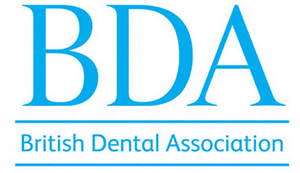Request an appointment
For dental appointments, please fill in the form below and we will call you back or email you to confirm your appointment.
Denture stomatitis (Thrush)
What is denture stomatitis (Thrush)?
It is a yeast/ fungus called candida or thrush, which causes an infection in the mouth. It is not a type of infection that can be passed on to others as everybody has some thrush in their mouths, even babies. It is possible to get thrush elsewhere.
Who can get denture stomatitis?
Denture wearers are the most common group to be affected along with people who have difficulties keeping their mouths clean. Diabetics and anyone who takes steroids either through inhalers or by mouth may also have problems. Some antibiotics are responsible for causing thrush and many people find that taking certain antibiotics encourages a recurrence of infection, especially if taken over a long period of time.
How can the dentist recognise it?
When the denture is taken out, your dentist may be able to see a very red area under the denture. There may also be red sore areas at the corner of the lips.
Why does denture stomatitis need treating?
If untreated, the condition can cause soreness in the mouth and may lead to poorly fitting dentures in the future.
How is denture stomatitis treated?
Good Oral Hygiene
It is important to keep your mouth as clean as possible and rinse after meals. Smoking promotes growth of further yeast infections, as does keeping dentures in the mouth for 24 hours at a time. It is important to let the mouth rest too!
Denture Hygiene
Dentures should be kept out as much as possible but definitely overnight. Some yeast infections will resolve completely if the dentures are not worn at night for two weeks. The dentures should be cleaned in warm soapy water and scrubbed with a soft nailbrush on the fitting surface, that is the non-polished side. The dentures can be soaked in any solution used to sterilize baby’s bottles e.g. Milton’s. If your denture has metal components, do not use anything with bleach but use chlorhexidine. Do not use the latter solution everyday as it will stain your denture. Use it once a week. There are many denture cleaners available but they tend to be more expensive than the ones mentioned.
Medication
If careful cleaning and hygiene has not helped you will be given some treatment. There are many treatments available, most of them involving sucking tablets/lozenges slowly in your mouth, but there is no evidence to show whether any one is better than another. Treatment may need to be continued for one month.
What happens next?
The dentist may want to check out your mouth after treatment to check that everything has cleared up. If this is not the case, they may recommend further treatment. In some cases you may need to treat the mouth for a long time.
It is important to have new dentures made every few years.
Even if you do not have any teeth left it is important for you to go for regular check-ups to your dentist to ensure that your mouth remains healthy.
Source: British Dental Health Foundation
Book an appointment at Dentistry For You
To start your journey to a new smile book an appointment with us today.
Why Dentistry For You?
- Established over 35 Years
- NHS & private dental care
- High quality treatments provided by experienced dentists
- In house quality assurance programme
- Over 2700 patient reviews across all locations
- All our practices are wheelchair friendly
Patient satisfaction is very important to us





